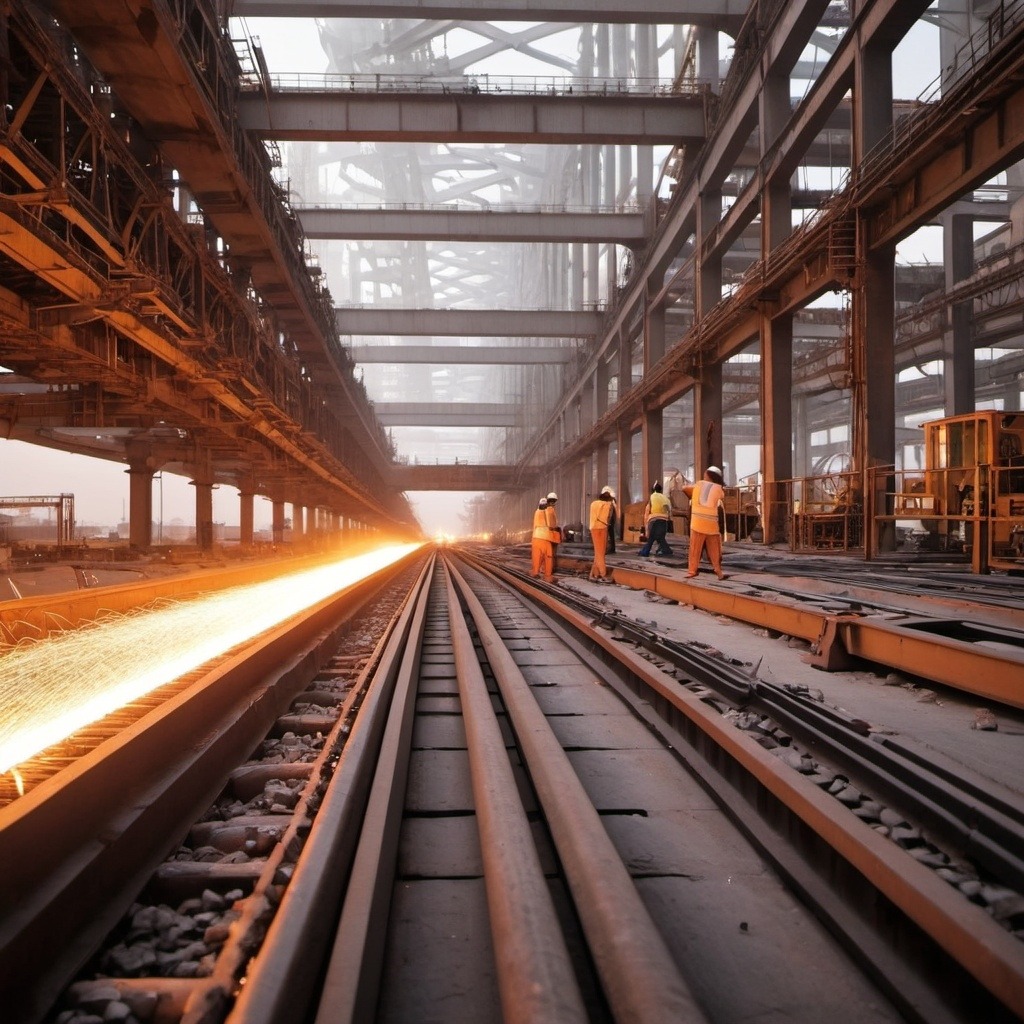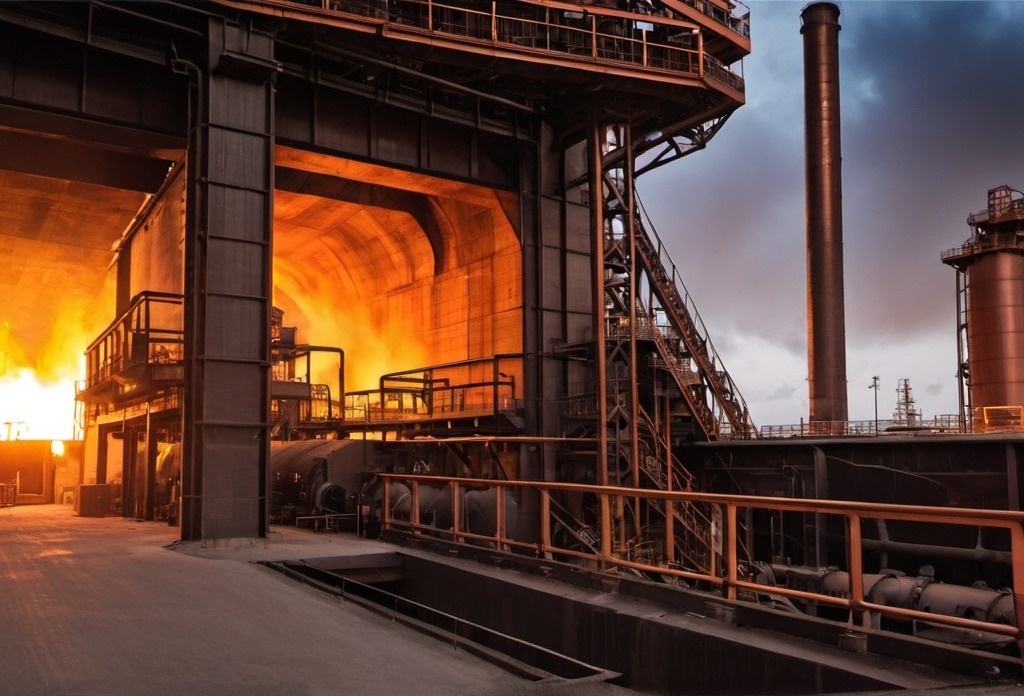Authors:
This article is a company reflection written by Dr. Yasser Aboura, Senior Project Manager and Metallurgist at Steel Hub, on a two-day visit at the UK Metals trade fair conference accompanied by Steve George, Senior Galvanising and Rolling Expert at Steel Hub.
Steel Hub is a technical consulting firm that helps forward-thinking organisations in the steel industry overcome their most critical operational challenges, accelerate product development and achieve decarbonisation objectives. We deliver practical and proven solutions that align with our clients’ strategic and operational goals.
_______________________________________________________________________________________________________________________
Key Takeaways:
- TATA Steel UK announced a £1.25 billion project to transition from traditional BF-BOF production to EAF technology, significantly reducing CO2 emissions.
- EAF production is seen as crucial for UK decarbonisation, yet only a small percentage of UK steel production currently uses EAF.
- High electricity costs in the UK present a major challenge, with calls for government support and policy reforms to make EAF technology more viable.
- CBAM will impose tariffs based on carbon intensity, prompting steelmakers to adopt greener practices.
- Demand for high-quality scrap is expected to rise, necessitating better scrap retention and processing standards to support EAF production.
The UK Metals Expo 2024, held at the NEC in Birmingham, exceeded expectations by bringing together the the entire metals supply chain in the UK. From primary metal production to recycling, the event showcased innovations and critical developments for the future of UK steelmaking. Sponsored by TATA Steel UK and supported by major trade associations, the Expo marked its third successful year of addressing key challenges faced by the industry.
Andrew McDonald, MP for Stockton North, opened the event by highlighting the detrimental impact of past de-industrialisation policies on the UK economy. He emphasised the Labour Government’s efforts to create an industrial strategy across party aimed at securing the future of key industries like steelmaking. McDonald also highlighted the substantial gap between the UK’s steel production per capita and that of other European nations underscoring the need for transformative changes in the UK steel sector.
“Belgium produces the same amount of steel as the UK, but Belgium’s population is under 12 million, while the UK’s is 67 million.”
Four Main Themes:
-
Towards a Greener Future: Decarbonisation in Steelmaking
Decarbonisation was a dominant theme at the Expo. TATA Steel UK CEO, Rajesh Nair, announced a £1.25 billion joint-funding project (500M from the UK government and 750K from TATA Steel) to decarbonise Port Talbot’s steelworks by transitioning from Blast Furnace-Basic Oxygen Furnace (BF-BOF) production to Electric Arc Furnace (EAF) technology. This shift aims to significantly reduce CO2 emissions, lowering them from around 2 tonnes of CO2 / tonne of BF-BOF steel to just 0.5 tonnes of CO2 / tonne of EAF steel. The transition was further solidified by the completion and signing of an agreement with Tenova to supply a 310-tonne EAF, with a production capacity of 450 tonnes per hour. The new EAF will be capable of producing most high-quality grades, delivering a 90% reduction in CO2 emissions compared to the existing BF-BOF plant2.
In addition to the decarbonisation of primary steelmaking, the “Blast to Arc” seminar discussed the need to address downstream processes. Paul Wheeler, Head of Process Sustainability at TATA Steel, emphasised that not all steelmakers will convert to EAF technology, making it crucial to decarbonise downstream processes like reheat furnaces, heat treatment furnaces, curing ovens, and annealing furnaces (both batch and continuous), which still rely on natural gas. The holistic approach to decarbonisation must encompass both primary production and these critical downstream operations to achieve industry-wide emissions reduction.
-
Transitioning to EAF: A Shift in Steel Production
The transition from BF-BOF to EAF technology is essential for the UK’s decarbonisation efforts. Currently, EAF production accounts for 69% of steel in the US, compared to just 29% globally. The “Blast to Arc” seminar at the Expo underscored EAF’s flexibility in production and its lower CO2 emissions, positioning it as a key solution for meeting decarbonisation and net-zero targets.
Gareth Beese, a CRU principal consultant, noted that 34 EAF projects are planned in Europe, with a total of 44 EAFs to be installed. However, the UK steel industry remains limited, with only six steel producers, four of which have EAF capabilities (Liberty Steel UK, Celsa, Marcegaglia, and Sheffield Forgemasters).
Despite the potential of EAF technology, high electricity costs remain a significant challenge for UK steelmakers. Gareth Stace, Director General of UK Steel, highlighted that UK steel producers pay 50% more for electricity than their counterparts in Germany and France. While the British Supercharger policy, introduced in late 2023, help to reduce electricity cost, the cost disparity with Germany and France remains at £16/MWh and £22/MWh, respectively2. This remaining gap is now largely due to the higher wholesale cost of electricity in the UK, necessitating further action to ensure UK steelmakers can compete internationally while pursuing decarbonisation goals.
Without addressing the electricity cost disparity, UK steel producers will struggle to compete effectively and meet net-zero targets. Industry leaders are calling for additional policy reforms and long-term government support to ensure that the UK can fully embrace EAF technology and remain competitive in the global steel market.
-
The Role of Scrap Metal in EAF Production
The seminars related to Carbon Border Adjustment Mechanism (CBAM) have addressed implementation challenges in the EU and the UK’s lag in mirroring the EU . CBAM will impose tariffs on imported goods based on carbon intensity, pushing industries to adopt greener practices. The UK is expected to introduce its version of CBAM by 2026, aligning with Scope 1, 2, and 3 emissions.
Gabriel Rozenberg, CEO of Cbamboo, highlighted key challenges for CBAM compliance:
- Current environmental reporting standards are not CBAM-compliant.
- CBAM will affect the entire metals value chain.
- Many companies still rely on “Excel” documents for emissions tracking, raising security and traceability concerns.
With CBAM set to take effect in the UK on January 1, 2026, steelmakers must prepare for these regulatory demands, which will reshape the competitive landscape and introduce new compliance obligations across the metals industry.
-
Scrap Metal: Key to EAF Production
EAF technology relies heavily on scrap metal as its primary raw material. The UK currently produces 10 million tonnes of scrap steel annually but consumes only 2 million tonnes domestically, exporting the remainder.
The “Scrap Shake-Up” seminars highlighted the crucial role of high-quality scrap in producing premium-grade steel via EAF. Demand for scrap is expected to rise to 6 million tonnes by 2030, while Europe is projected to face a deficit, with demand reaching 115 million tonnes and supply limited to 110 million tonnes. This shortfall underscores the need to retain high-quality scrap within the UK to support the steel industry’s decarbonisation efforts.
Roger Morton, Managing Director of EMR, called for stricter government intervention to prevent the export of valuable low-residual scrap—especially from obsolete cars—that is crucial for EAF production. He advocated for the development of a high-quality scrap standard to incentivise keeping high quality scrap within the UK. Richard Curry of Swansea University added that certain high-grade steel products may still require supplements like Direct Reduced Iron (DRI) or Hot Briquetted Iron (HBI) due to impurities in scrap, which introduces additional carbon considerations.
Mark Allen of the MPI also supported the need for improved scrap processing, promoting the use of their 7 t capacity EAF in the North East of England as a trial facility for new EAF steelmakers to experiment with different scrap and raw material mixes. He stressed the importance of removing impurities at the source, which remains a challenge for current scrap processors.
How Steel Hub Can Support the UK Steel Industry
At Steel Hub, we are committed to supporting UK steelmakers through the complex transition to sustainable steel production. As the industry shifts from BF-BOF to EAF technology, we offer specialised expertise to address key challenges, including:
- EAF melt shop practice: Our technical experts provide awareness training through to know how guidance when starting up a EAF operations, current and new product mix evaluation, new grades implementation and development of a scrap supply to meet these demands.
- Defining a Sustainability and Decarbonisation Strategy: We help steelmakers develop and implement decarbonisation plans from steel making through to downstream operations, aligning production with carbon emission targets and industry best practices.
- Evaluation of CO2 intensive downstream processes such as re-heat and heat treatment furnaces, curing ovens, continuous/batch annealing furnaces and steam generation.
For more information please visit our steelhub.com or contact info@steelhub.com
References:



